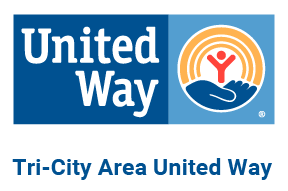
July 2019 Newsletter
OUR AGENCY MISSION STATEMENT
We believe: No one deserves to be abused be it emotionally, physically, or sexually. Our prime service is the safety and empowerment of all victims and their children.
We Will: Provide prevention, education, and information to our community, families and schools.
Rainbow House Domestic Abuse Services, Inc.
P.O. Box 1172, Marinette, WI 54143 (800) 956-6656
1530 Main St. Marinette, WI 54143 (715) 735-6656 fx: (715) 735-7293
1008-B Pecor St. Oconto, WI 54153 (920) 834-5299 fx: (715) 735-7293
www.TheRainbowHouse.us
From the Director’s Desk: Courtney Olson
High Risk Team Formation: Homicide Prevention Initiatives in Marinette and Oconto Counties
Domestic Violence is the most predictable type of homicide. What we can predict, we can prevent. Recent results from the CDC show that more than half of homicides committed against women involve a former or current intimate partner. In Marinette and Oconto Counties, we are making strides to combat this occurrence. When officers are called out to the scene of a domestic violence incident, a Lethality Assessment Program (LAP) is administered. Victims are asked 11 questions that help identify the level of homicide risk. These questions are evidence-based indicators of lethality. This survey was designed by Dr. Jacqueline Campbell, one of the leading US researchers on intimate partner homicide. Rainbow House was among the first wave of agencies in Wisconsin to implementthe LAP. All Police and Sheriff’s departments in both Marinette and Oconto counties have fully trained and implemented this protocol.
For law enforcement, the process begins when an officer arrives at the scene of a domestic violence call. The officer assesses the situation, and when the standards for danger are met, the officer asks the victim the series of 11 questions on the LAP.
If the victim’s scored responses to the questions indicate increased risk for homicide, the officer privately informs the victim that the officer is concerned for the victim’s safety, and that in situationslike the victim’s, people have been known to be killed. The officer then makes a phone call to the Rainbow House Crisis Line. The victim is given the opportunity to connect with services such as access to shelter, restraining orders, and safety planning.
Identifying these cases was a beginning point. How as a community can we respond? In rural areas, the length of time it may take for law enforcement to respond can be long given the size of our counties, as can be the trip to transport a victim with physical injuries to a hospital. These factors increase risk. Our best chance for success then, is preventing the typical pattern of escalation.


